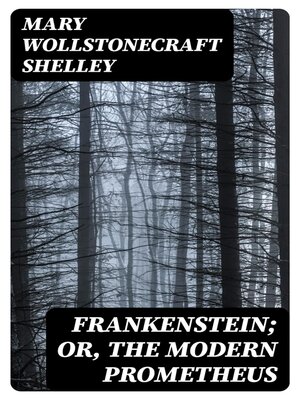
Sign up to save your library
With an OverDrive account, you can save your favorite libraries for at-a-glance information about availability. Find out more about OverDrive accounts.
Find this title in Libby, the library reading app by OverDrive.



Search for a digital library with this title
Title found at these libraries:
| Loading... |
In 'Frankenstein; Or, The Modern Prometheus,' Mary Wollstonecraft Shelley weaves a tale of ambition, hubris, and the perils of unbridled scientific advancement. Through Shelley's rich prose and Gothic literary style, the book addresses the consequences of playing God, as Victor Frankenstein's creation turns from a wonder of scientific achievement into an embodiment of horror and tragedy. Fashioned within the climate of Romanticism, the novel situates itself as a pivotal cautionary work that interrogates the limits of human endeavor and the pursuit of knowledge, drawing heavily on the mythic parallel of Prometheus. Shelley's narrative strategy involves multiple perspectives, yet maintains a haunting ambiance that echoes throughout the literary aeon. Mary Wollstonecraft Shelley was profoundly influenced by the intellectual milieu of her day, which included the Enlightenment's faith in reason and the Romantic era's celebration of the sublime and emotional. Raised by her philosopher father, William Godwin, and influenced by her late mother, the feminist Mary Wollstonecraft, along with the company of the poet Percy Bysshe Shelley, Mary's literary ascent was as tumultuous as it was embedded in the socio-political debates of her time. Her personal experiences with loss, love, and exile are subtly imbued within the text, serving as a subtextual narrative that enriches the reader's understanding. 'Read the book' by Mary Wollstonecraft Shelley is highly recommended for those with an interest in the Gothic genre, the ethics of science, and the power of human emotions entwined with nature. It is a profound exploration of the human condition, parental neglect, and the societal outcast. By valuing the originality and foresight in Shelley's work, readers may grasp the continuing relevance of this masterpiece, which remains as impactful today as when it first echoed the anxieties of the early 19th century. It is a must-read, not only as a cornerstone of English literature but also for its enduring questions about the essence of innovation and humanity's role in the natural world.






